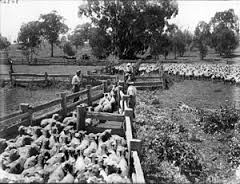cull
英 [kʌl]
美 [kʌl]
- vt. 精选;采集(鲜花等);剔除
- n. 剔出来杀掉的动物;拣出的等外品
- n. (Cull)人名;(英)卡尔
使用频率:

记忆方法
将“cull”与“culled”这个动词的过去式和过去分词形式联系记忆,想象一群鸟因为健康或数量管理的原因被“清理”掉了,这个场景可以帮助你记住“cull”意为挑选、淘汰或清理。
以上内容由AI生成, 仅供参考和借鉴
中文词源
cull 部分宰杀
来自collect,收集。
英语词源
- cull
-
cull: [15] Ultimately, cull is the same word as collect. It comes via Old French cuillir from Latin colligere ‘gather together’, whose past participial stem collēct- formed the original basis of English collect. The Latin verb was a compound formed from the prefix com- ‘together’ and legere ‘gather’ (source also of English elect, neglect, select, etc).
=> collect, elect, lecture, legend, neglect, select - cull (v.)
- early 14c., "choose, select, pick; collect and gather the best things from a number or quantity," especially with reference to literary selections, from Old French cuiler "collect, gather, pluck, select" (12c., Modern French cueillir), from Latin colligere "gather together, collect," originally "choose, select" (see collect). Meaning "select livestock according to quality" is from 1889; notion of "select and kill (animals)," usually in the name of reducing overpopulation or improving the stock, is from 1934. Related: Culled; culling.
- cull (n.)
- "dupe, saphead," rogues' slang from late 16c., perhaps a shortening of cullion "base fellow," originally "testicle" (from French couillon, from Old French coillon "testicle; worthless fellow, dolt," from Latin coleus, literally "strainer bag;" see cojones), though another theory traces it to Romany (Gypsy) chulai "man." Also sometimes in the form cully, however some authorities assert cully was the canting term for "dupe" and cull was generic "man, fellow," without implication of gullibility. Compare also gullible.
- cull (n.)
- 1610s, "a selection," from cull (v.). From 1791 as "flock animal selected as inferior;" 1958 as "a killing of animals deemed inferior."
权威例句
- 1. the annual seal cull
- 每年对海豹的选择性宰杀
- 2. To save remaining herds and habitat, the national parks department is planning to cull 2000 elephants.
- 为挽救现存兽群和它们的栖息地,国家公园部计划选择性捕杀2,000头大象。
- 3. It is usually good practice to cull the poorest prior to field planting.
- 通常在实践上的好方法是在出圃栽植前挑出最弱的苗木.
- 4. Said Dr. Cull to the high school students touring the laboratory.
- 卡尔博士对前来参观实验室的高中生们说.
- 5. Each autumn, the villagers will cull the sick members of the herd.
- 每年秋天, 村民们都要挑出畜群里的病弱杀掉.
